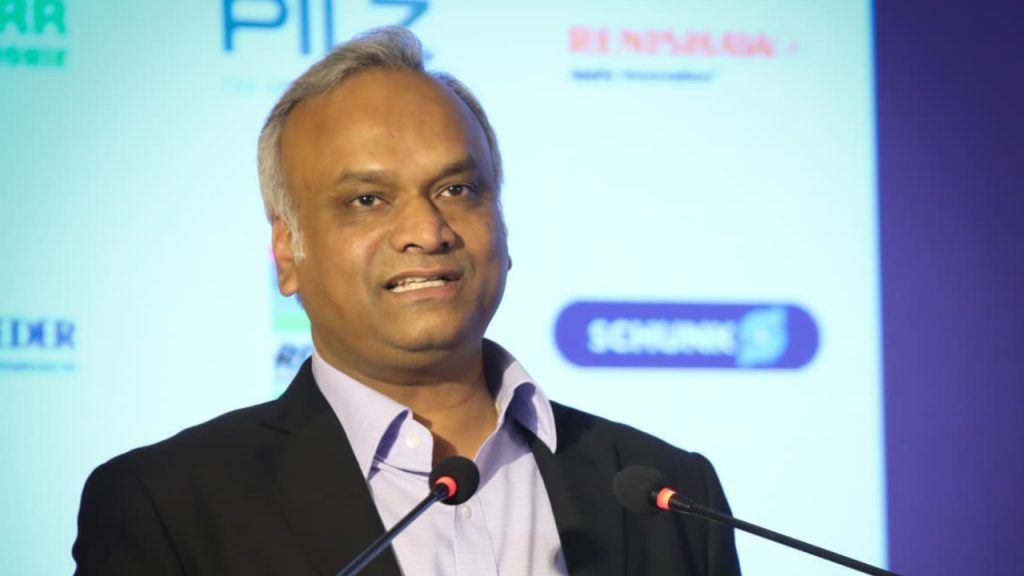Listen to the article
Karnataka Minister Anticipates Misinformation Bill to Be Tabled in Winter Session
Karnataka Information Technology and Biotechnology Minister Priyank Kharge has expressed confidence that the proposed Karnataka Misinformation Bill will be presented during the winter session of the state Assembly scheduled for December in Belagavi.
Speaking at a policy dialogue titled “Truth, Trust and Technology” at the National Law School of India University in Bengaluru on Friday, Kharge defended the controversial legislation, emphasizing that its primary objective is to “name and shame” individuals spreading falsehoods and to regulate platforms that amplify misinformation.
“This bill has no intention of curbing free speech, creativity, satire, or opinions,” Kharge assured attendees at the event, which was jointly hosted by NLSIU and Ikigai Law.
The proposed Karnataka Misinformation and Fake News (Prohibition) Bill, 2025, would establish a six-member social media regulatory authority empowered to restrict, block, and ban content deemed false or misleading. This regulatory body, officially named the Fake News on Social Media Regulatory Authority, would be chaired by the Minister for Kannada and Culture and include representatives from both houses of the state legislature, social media companies, and a senior IAS officer serving as Secretary.
The legislation provides specific definitions for the terms it seeks to regulate. According to the bill, “fake news” encompasses misquotations, false reporting of statements, edited audio or video that distorts facts or context, and completely fabricated content. Meanwhile, “misinformation” is defined as knowingly or recklessly making false or inaccurate factual statements, with explicit exemptions for opinions, religious sermons, satire, comedy, parody, and artistic expression that a “reasonable man of ordinary prudence” would not interpret as factual claims.
The bill represents one of the most comprehensive attempts by a state government in India to tackle the growing problem of digital misinformation. Karnataka, home to India’s technology hub Bengaluru, has positioned itself at the forefront of addressing challenges in the digital space.
Industry observers note that the legislation comes amid increasing concerns about the role of social media in spreading false information during elections, health crises, and communal tensions. The COVID-19 pandemic particularly highlighted how rapidly misinformation can spread and cause real-world harm.
However, the proposal has not been without its critics. Digital rights activists have raised concerns about potential overreach and the bill’s implications for free speech. Some legal experts question whether a state government has the jurisdiction to regulate social media platforms, which typically fall under central government purview.
The bill’s introduction in the winter session would mark a significant step in what is likely to be a contentious legislative process. If passed, Karnataka would become the first Indian state to implement such comprehensive regulations specifically targeting misinformation on social media platforms.
The timing of the legislation is particularly significant as India grapples with the broader implications of digital misinformation on democratic processes, public health, and social harmony. The Karnataka government’s approach could potentially serve as a model for other states considering similar regulations.
As the December session approaches, all eyes will be on Belagavi to see whether this pioneering legislation moves forward and what amendments might be introduced in response to ongoing public and expert feedback.
Fact Checker
Verify the accuracy of this article using The Disinformation Commission analysis and real-time sources.




10 Comments
I’m curious to see how this bill will define and identify ‘misinformation’ in practice. The line between misinformation and legitimate debate can be blurry, so the criteria used will be important.
Interesting to see Karnataka taking steps to address misinformation. Curbing the spread of false narratives is critical, but the implementation will be key to ensuring free speech is protected.
Agreed, finding the right balance between free expression and content moderation is challenging. Curious to see how the regulatory authority’s powers are defined and applied in practice.
This proposed bill highlights the ongoing battle against the proliferation of misinformation, especially on social media platforms. Transparent and accountable regulation could help, but the details will be crucial.
Absolutely, the devil will be in the details. Oversight and enforcement mechanisms will need to be carefully crafted to avoid overreach or unintended consequences.
While I appreciate the government’s aim to address the spread of false narratives, this bill seems to grant the regulatory authority broad powers. Careful consideration of civil liberties is warranted.
Absolutely, the scope and limits of the authority’s powers will be crucial. Overreach could have serious implications for freedom of expression.
The Karnataka government’s intention to curb the spread of misinformation is understandable, but the proposed regulatory authority raises concerns about potential abuse of power. Safeguards for free speech will be critical.
Agreed, the potential for misuse of such an authority is concerning. Transparency and robust checks and balances will be essential to maintain public trust.
Tackling misinformation is a complex issue without easy solutions. While this bill aims to address the problem, I hope the government consults widely to ensure it doesn’t inadvertently stifle legitimate discourse.